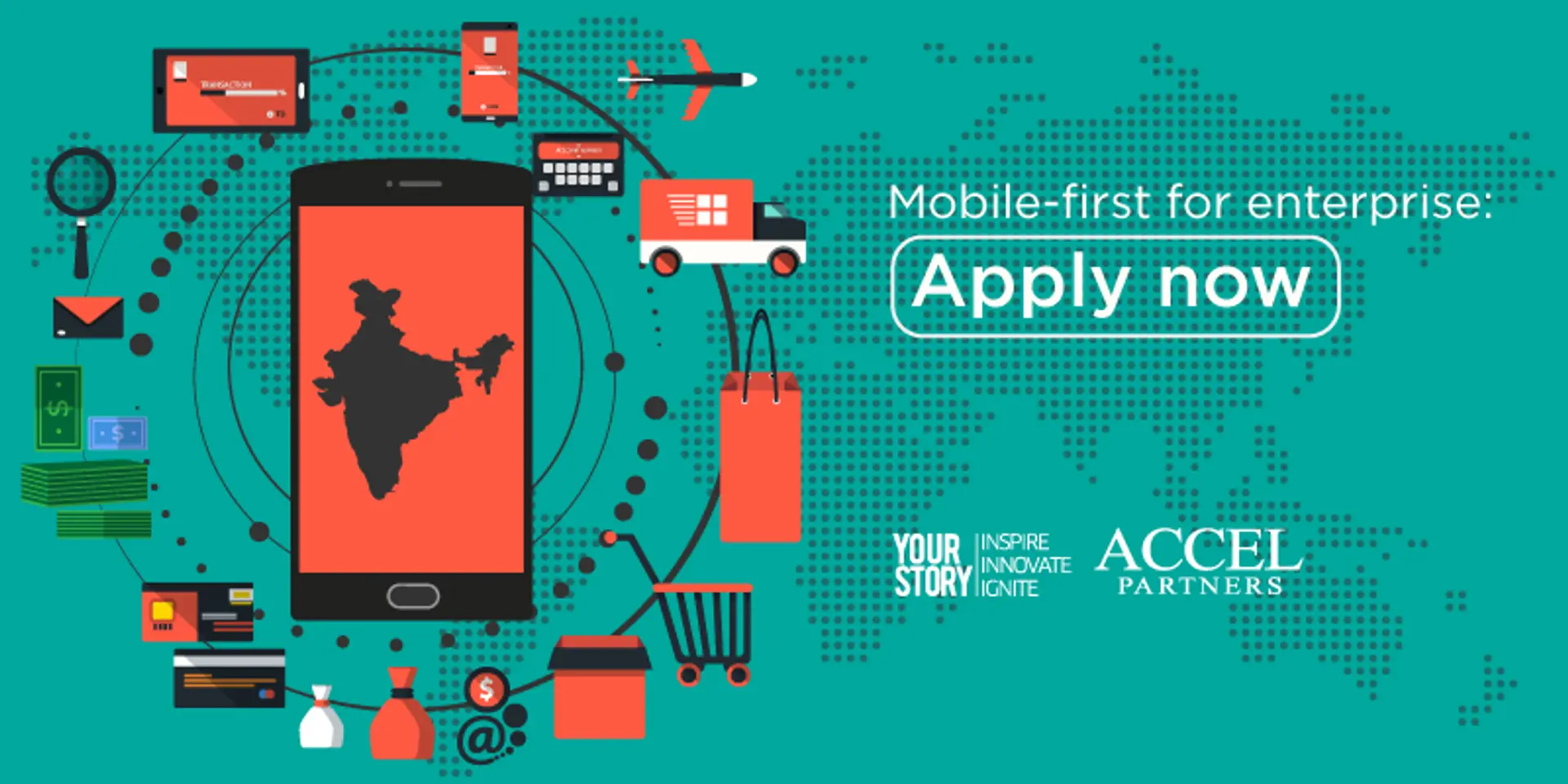Building enterprise mobility solutions for the global workforce and what it means for Indian startups
This article is sponsored by Accel Partners.
Workplace culture has undergone a metamorphosis with millennials, who comprise a third of the global workforce, and even the older generation, relying more and more on mobile technology. Today, we carry the web in our pockets, and the ubiquitous smartphone is an indelible part of our lives. The 2015 annual Ericsson Mobility Report shows that there are 2.6 billion smartphone subscriptions globally, and by 2020, that number will increase to 6.1 smartphone users, led by huge growth in less mature markets.
With smartphones and mobile technology having transformed almost every aspect of our lives, from education, entertainment, food, travel, and financial services, it was only a matter of time before people expected the same flexibility and seamless technology-based user experience from their workplaces. This means that now more than ever, there is a significant focus on a ‘mobile-first’ strategy for enterprises.

The mobile-first approach translates into embracing mobile as one of the primary IT channels for a company and ensuring its business processes are designed accordingly.
[Share your thoughts with us and get a chance to engage with venture capital firm Accel Partners and other like-minded entrepreneurs. It might just be the start of your new journey into a mobile-first future!]
Building for the mobile-first workforce requires companies to design smart solutions for smartphones and tablets, which will enable employees to accomplish their tasks with ease and flexibility. Before building enterprise mobility products, these are the questions you need to ask: By mobilising this task, can it be done faster and better? What features and functionalities are most valuable for employees? Ultimately, enterprise mobility solutions have to meet the needs of the workforce, who are consumers at heart.
Enterprise mobility solutions are not the future, but the present
Despite the burgeoning number of smartphone users, it is believed that technology penetration in the 3 billion strong global workforce is just 20 percent. This means that there is huge untapped potential for developing technology aimed at maximising workforce efficiency. And, with the rapid adoption of smartphones and increased internet penetration, the enterprise mobility space is poised for huge growth.
This market opportunity is bolstered by three additional factors. First, reduced infrastructure, development, hardware, connectivity, and training costs. Second, existing tools and platforms being used by regular consumer applications can be extended to develop, integrate, deploy, and manage your enterprise mobility solutions. This facilitates the implementation of mobile initiatives across the entire organisation, without additional dependencies on technology or costs. The third factor is the mammoth difference between the enterprise customers’ expectations and their experiences, especially when compared to their experiences on personal apps.
This is an opportune time for companies, from small startups to large corporations, to design technology, products, and services for the mobile-first workforce. In fact, a number of companies, especially startups in emerging markets such as India and China, have already begun to capitalise on this demand. Enterprises across the world spend roughly $500 billion on enterprise software that is used by about 600 million workers. India, which has seen the power of mobile in democratising technology, has the potential to claim a large slice of this billion-dollar opportunity.

The country is already beginning to see a number of home-grown startups in the mobile enterprise space. For instance, SignEasy enables document authorisation on the go, allowing corporate processes to move along faster. It is already being used in 150 countries. Mindtickle’s mobile-first sales enablement solution makes it easier for sales professional to have the necessary information at their fingertips. Vymo creates a mobile-powered virtual assistant for employees in the field. Freshdesk’s Hotline offering allows support professionals to resolve their customers’ complaints on mobile apps. BroEx offers mobile apps for real estate professionals to manage their businesses.
These are just a few of the global enterprise mobility products emerging from India.
As the conversation about convergence between mobile and traditional workplace computing continues to gain traction, we would like to know your thoughts on how India can lead in building mobile-first solutions for the global workforce. Tell us what significant difference you think a mobile first approach can make for enterprises.
Share your thoughts in 500 words, and get a chance to engage with venture firm Accel Partners and other like-minded entrepreneurs. It might just be the start of your new journey into a mobile-first future!
Last date for application: July 14, 2016.







